OneFootball
Alex Mott·10 December 2020
🕵️♂️ Football League Focus: Watford
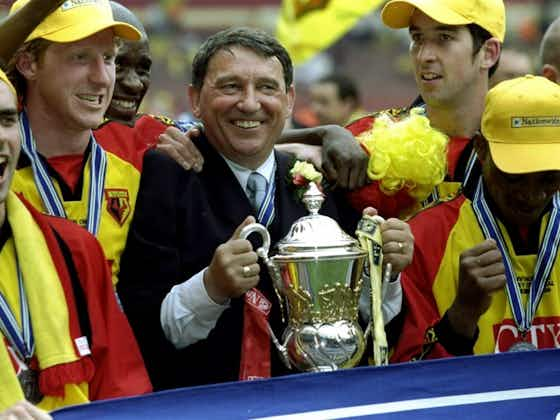
In partnership with
Yahoo sportsOneFootball
Alex Mott·10 December 2020

Welcome to our latest series here at OneFootball where we’re shining a light on one Football League club each week.
It’s our chance to go in-depth on sides that don’t normally attract our attention and hold up a magnifying glass to the plethora of brilliant stories outside the Premier League.
So far we have looked at:
Cardiff City, Derby County, Sunderland, Nottingham Forest, Huddersfield, Stoke, Birmingham, Sheffield Wednesday, Norwich, Bristol City and Portsmouth.
This week we’re off to Hertfordshire and the home of Anthony Joshua, Super Hans from Peep Show and the Wetherspoons head office – it’s Watford.
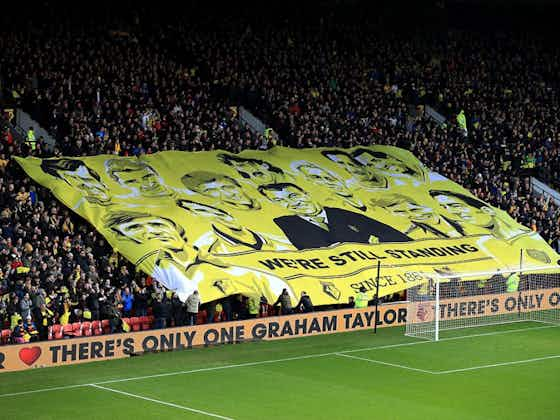
A town on the edges of London, a place neither here nor there. Where once there used to be paper mills and breweries now there are industrial estates and shopping centres.
Watford has been through plenty of changes during its near 1,000 years of existence but perhaps nothing encapsulates that more than its football club.
A lower league mainstay for over 70 years, the Hornets rapidly became one of the best in the country under the auspices of mega-star Elton John in the 1980s and then, very quickly, they weren’t.
There’s is a very modern football tail – and one with a pretty decent soundtrack to boot.
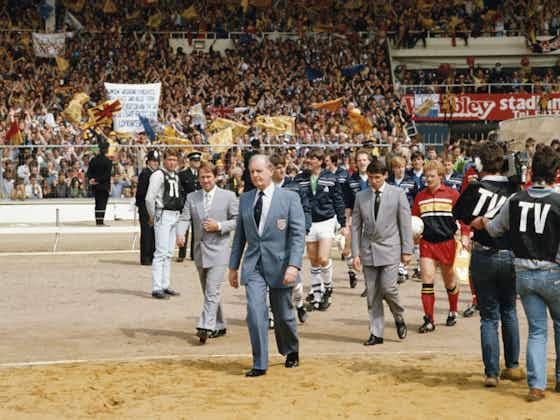
Watford’s origins go back to 1881 when the original Watford Rovers formed as an amateur football arm of the West Hertfordshire Sports Club. Their FA Cup debut came five years later but it wouldn’t be until 1898 when Watford FC would truly be born.
An amalgam of Rovers and Watford St.Mary’s, the newly-formed club were placed in the Southern League and would duly win the division in 1914 on the eve of the First World War.
The outbreak of the Great War would mean football ceasing in England and post-conflict, the football pyramid in England was restructured, meaning Watford would enter the 1920/21 season in the new Third Division.
And amazingly, that’s where they would stay – bar relegation in 1958 – until the early 1970s.
The Hornets were a Third Division side, never finishing above sixth, for just under half a century, before winning the Third Division in 1969, having beaten Swindon to the title by a goal average of just 0.13.
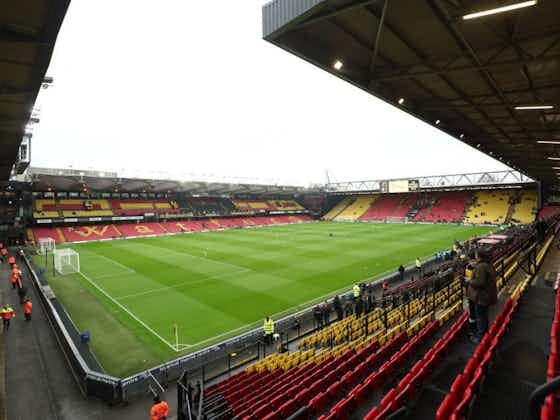
The following season they would reach the FA Cup semi-final for the first time, beating First Division Stoke and Liverpool along the way, before coming unstuck against eventual champions Chelsea at White Hart Lane.
Fans of the Hertfordshire side must have thought they were in dreamland – but the arrival of the world’s biggest pop star six years later would take them to new and dizzy heights.
A lifelong Watford supporter, Elton John was never going to be your typical Football League chairman but those who brushed off his arrival as a vanity project were quickly proved wrong.
The Rocket Man troubadour wisely dispensed of coach Mike Keen in April 1977 – with the team in the Fourth Division – and made the single most important hire in the club’s history.
Graham Taylor had been a success in the Fourth Division, having won the league with Lincoln the year before, but he had his sights set on much more than lower league glory at Vicarage Road.

Taylor would win the title in his first season, losing just five of 46 games and the following year would once again get promotion, this time to the Second Division.
It was the highest Watford had ever been in their history, but it didn’t end there. In 1982, just five years after his arrival, Watford were promoted from the Second Division to the First with John Barnes, just 17 at the time, making his debut and starring throughout the campaign.
Of course, the top flight of English football is a completely new level but astonishingly, Watford weren’t deterred. They finished their debut season in a ridiculous second place – doing a the double over Arsenal and beating heavyweights Everton and Liverpool at home.
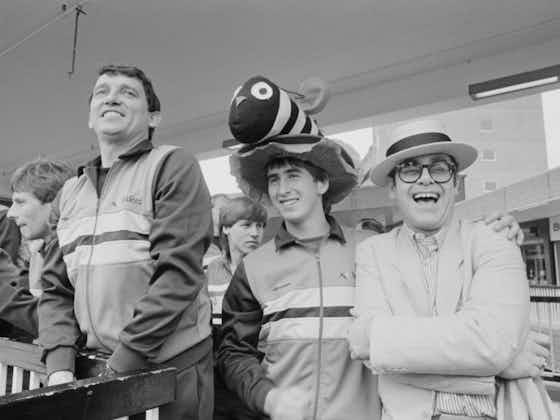
It meant that Taylor’s men would compete in the 1983/84 Uefa Cup – beating Kaiserslautern on a famous Vicarage Road night, as well as Levski Sofia – before eventually going out to Sparta Prague in the third round.
But the zenith of the Taylor reign thought would come in May 1984, with the Hornets incredible journey from Fourth Division to First culminating in the FA Cup final against Everton.
Unfortunately it wasn’t to be, as the Toffees – comfortably one of the best sides in Europe at the time – won 2-0 in front of 100,000 at Wembley.
Taylor’s departure, as well as the sales of top goalscorer Luther Blissett and John Barnes, signalled a downward spiral, but the arrival of the Pozzo family in 2013 sparked new life into the Hornets in the 21st century.

Despite their predilection for hiring and firing managers, under the Pozzo’s ownership, Watford have been consistently in the Premier League and reached their second FA Cup final in 2019 – the less said about that though, the better.
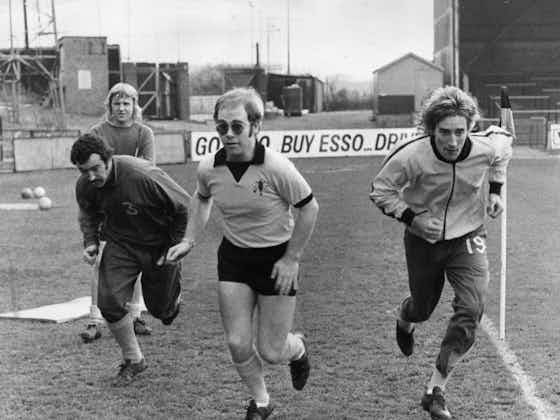
You could perhaps argue that Watford’s first seventy years of existence was one existential low.
Never getting out of the Third Division surely tested even the hardiest of fans’, but really the lowest ebb wasn’t the Fourth Division botherers of the late 50s or the early 70s.
No, truly Watford’s nadir came in the mid-1990s.
Just a decade after they had lorded it over English football with the genius of Barnes and the goals of Blissett, the Hornets were now back in the third tier.
Dave Bassett, Steve Harrison, Colin Lee, Steve Perryman, Glenn Roeder – all managers who came to try and steer Watford back into the upper echelons of the domestic game and all managers who failed as they slid down the pyramid.
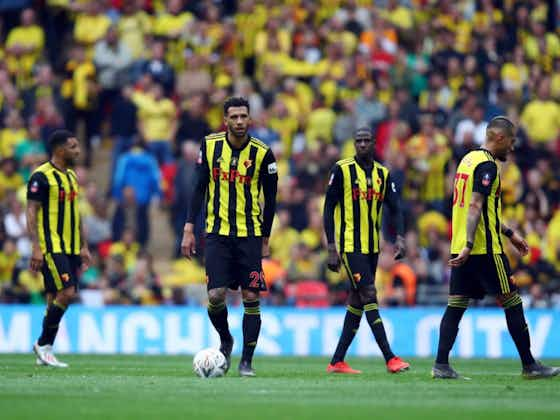
By 1996 they were relegated to the new Second Division having won just 10 games all season and it wasn’t until the return of Taylor as manager – post England embarrassment – that year that things started to improve.
Taylor remained in the dugout at Vicarage Road until 2001, becoming only the third manager in British football history – behind Brian Clough and Jim Smith – to take charge of 1,000 games in the Football League.
The collapse of ITV Digital that year however – which many clubs had used to prop up their ever-inflating wages – saw the Hornets go to the brink of administration only for a huge wage deferral and a run to the 2002 FA Cup semi-final save them from extinction.

Graham Taylor masterminded Watford’s charge up the pyramid and took the club into Europe and to their first ever FA Cup final
John Barnes is the club’s greatest, most mercurial player and a leading light in their best ever team.
Luther Blissett is still Watford’s record appearance-maker and goalscorer, in a Vicarage Road career that lasted from 1975 to 1993 over three spells.

Quite comfortably the best squad in the Championship, Watford have a whole host of players who could easily fit into almost any Premier League side.
Ismaïla Sarr has been impressing everyone with his astonishing pace and stunning technique and it’s no surprise that Liverpool were circling for his services over the summer.
Another flying young forward who’s taken Vicarage Road by storm is João Pedro. The Brazilian joined from Fluminense earlier this year and is already proving far too good for the second tier.
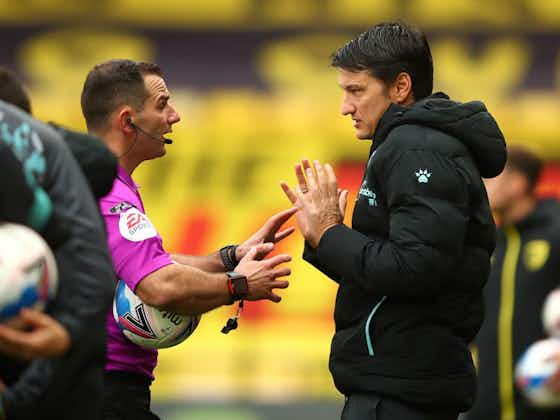
Nigel Pearson’s sacking over the summer was somewhat unexpected, Vladimir Ivić’s hiring as first team coach was absolutely shocking.
A complete unknown in England before his arrival, Ivić’s last job was with Maccabi Tel Aviv where he took them to the Israeli title.
Whether that’s a barometer for success in the Championship remains to be seen, but his iron fist approach to management seems to be getting something out of this Watford side so far.
They tasted defeat in their last game at home to Cardiff but before that the Hornets had gone the whole of November unbeaten.
Impressive wins over the likes of Stoke and Coventry have been dampened by frustrating draws with the likes of Wycombe and QPR.
Still, at the time of writing, Watford sit in seventh place and will almost certainly be in the promotion conversation come the end of the season.






























































